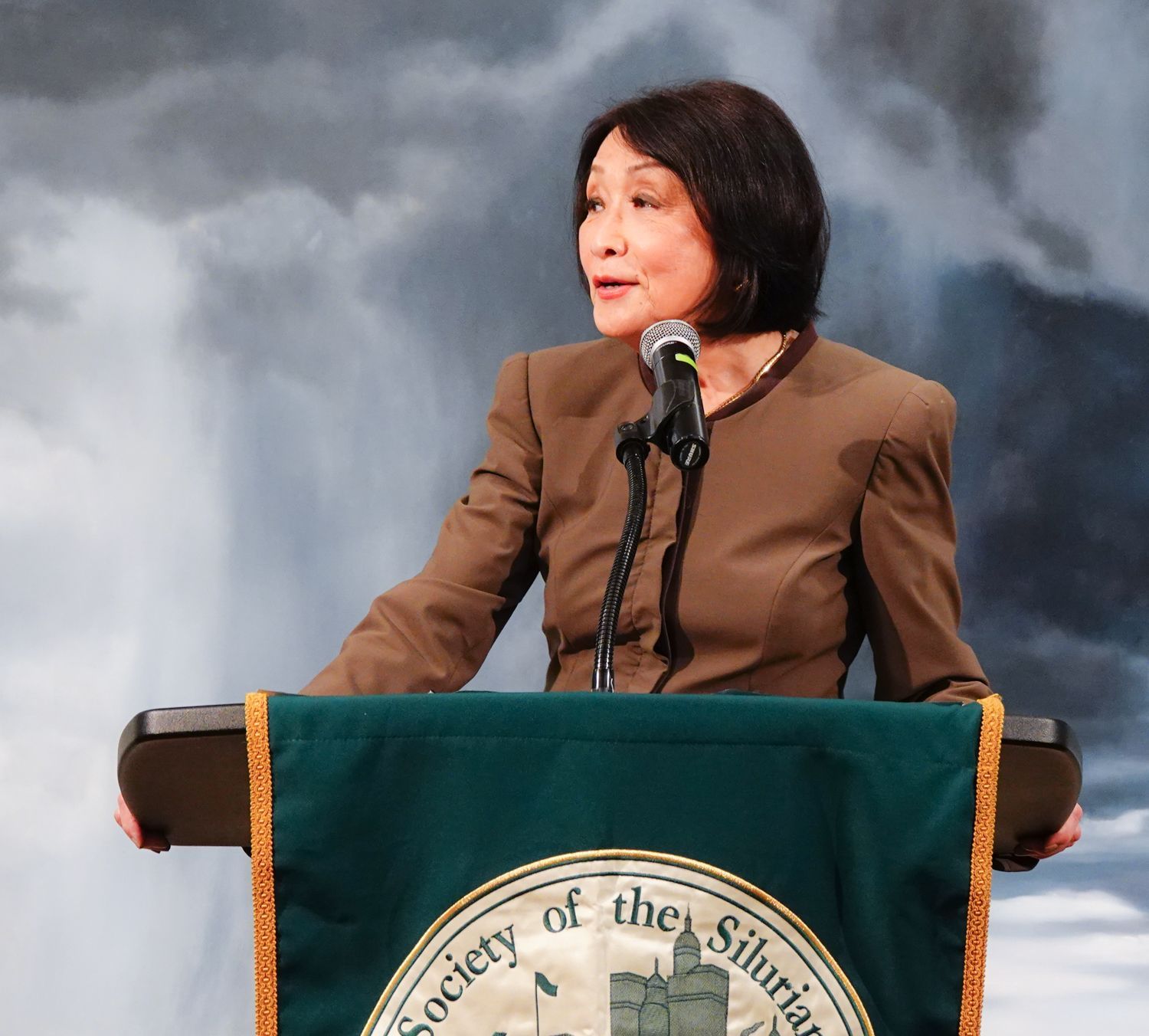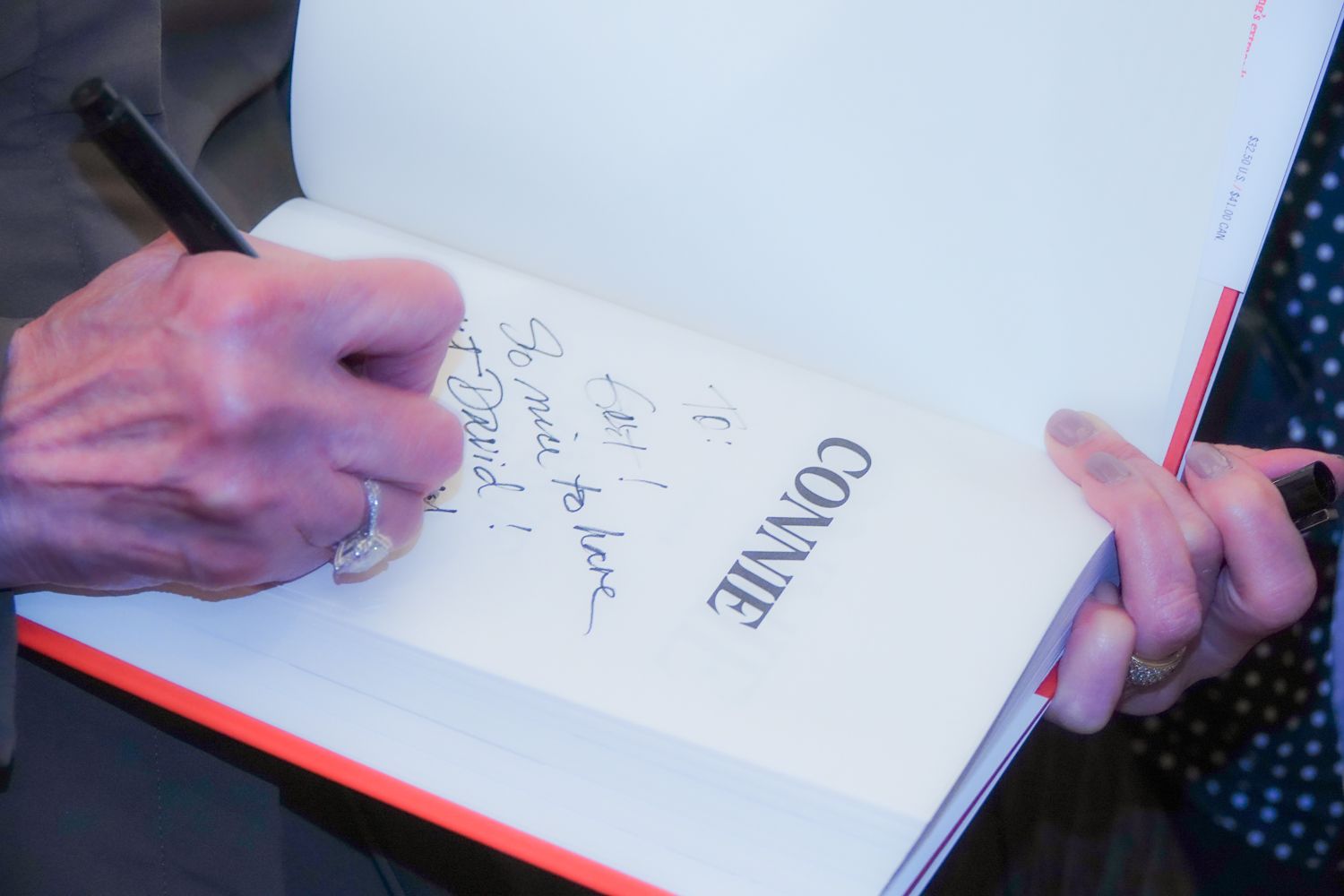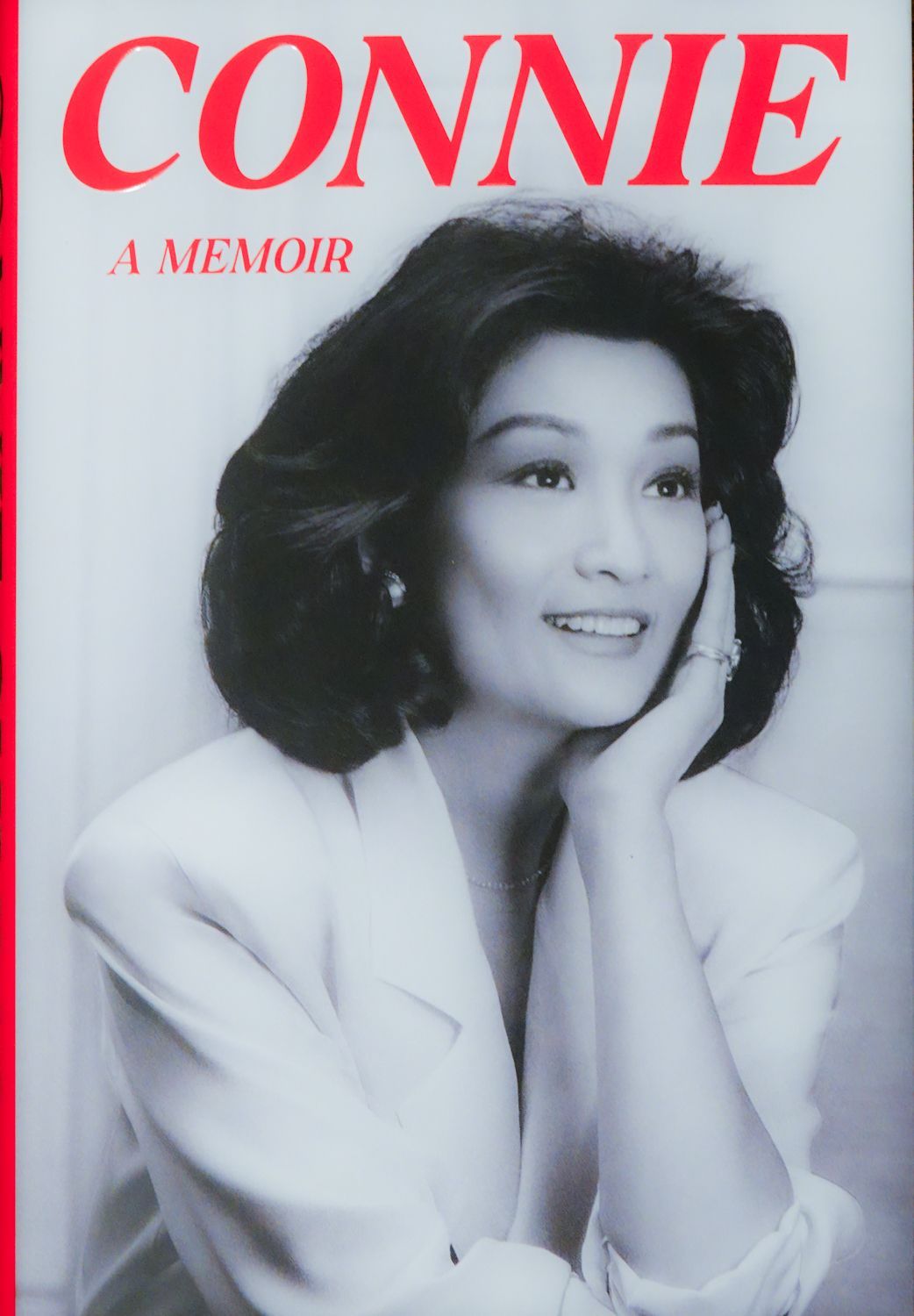
Connie Chung
Her Worst Day, Best Day, and Weed Bearing Her Name: A Very Connie Story
By Mel Laytner
Perhaps the worst day of Connie Chung’s life was being fired from her dream job, sitting in “half of Walter Cronkite’s seat,” co-anchoring the CBS Evening News. With karmic irony, two days later was one of her best: Chung and husband Maury Povich learned that their long-pursued adoption had come through.
That gave Chung a newfound perspective when weighing CBS’s "consolation prize" – subbing for Dan Rather, weekend anchoring, documentaries. "I said, ‘You can take this job and shove it’ because I decided I would have a new life raising my son."
This blend of caustic professional critique and candid personal revelation, laced with unrelenting humor and self-deprecating wit, was on full display when Chung accepted the Silurians’ 2025 Lifetime Achievement Award on April 23 at the National Arts Club. It was an honor, Chung said, to accept this award from peers who "know what it's like to be a journalist... searching for that truth—and there’s a dearth of truth."
Chung, whose career broke barriers for women and Asian Americans in broadcast news, covers all this and more in her bestselling book, Connie, a Memoir.
When she landed at CBS, the “Tiffany network” was run by Bill Paley. He made sure the news division operated autonomously, protected from corporate interference. True, Chung observed, Paley had cash cows like “I Love Lucy”, “Gunsmoke” and Jack Benny to help underwrite the costly news operation.
“Now it’s the mess it is today,” Chung said. Under Paramount, profit has replaced the public good. Now, it's “bottom-liners” in charge. Democracy, in Chung’s eyes, is fraying. “I can’t fathom that the truth no longer matters.” You could almost hear her sigh.
When Chung described the hard stuff—loss, racism, rejection, industry sexism—she spoke as someone both tired of the nonsense and unwilling to let it slide.
At CBS, Chung found herself in a “sea of men.”
“I thought, ‘how can I navigate this’? Because I'm not only a woman, but I'm this little lotus blossom,” she said, demurely cupping her hands under her chin. “You know, this little doll…Something to play with.” Her strategy? Become one of the boys, talk “like a sailor” and “be one of them. I would take on their aggressive behavior... their confidence.”
Much like Barbara Walters's experience co-anchoring with Harry Reasoner years earlier, Chung found her male counterpart, Dan Rather, less than welcoming. "Both Harry and Dan despised us," she said, "absolutely despised our existence...They wouldn't even have wanted a plant sitting next to them because they wanted the whole chair."
There were also surprising challenges in newsrooms where women were given “a tiny sliver of the pie,” only to find themselves fighting each other. Working with Barbara Walters and Diane Sawyer at ABC, Chung thought “we’d be a triumvirate, going after Peter Jennings together. But no—we were dodging bullets from each other.”
When a journalism student asked for advice for “future news anchors,” Chung took a long beat before replying, knowing her answer would not please the student.
Television, Chung said, is “a dying industry, in fact, it's on its last legs.”
Yet, Chung strongly advocated for the press's traditional role in our democracy. "There is no other avenue except the Fourth Estate,” she said, stressing the imperative "to speak truth to power".
She saw hope in strong local journalism. "National news is local news," she said, “because every single national story was, 30 seconds prior to that, a local news story. And then it became national.” Robust local news coverage was “so important because we can shape the dialogue nationally through local news.
There may be no better time to be a journalist, Chung said, “Or is it better that I actually have a strain of weed named after me? Yes: ‘Connie Chung Weed’ and it's online…I'm easy to grow and I have a nice scent and I don't give you the crazies too much.” The best part, “my marijuana is low maintenance.”





